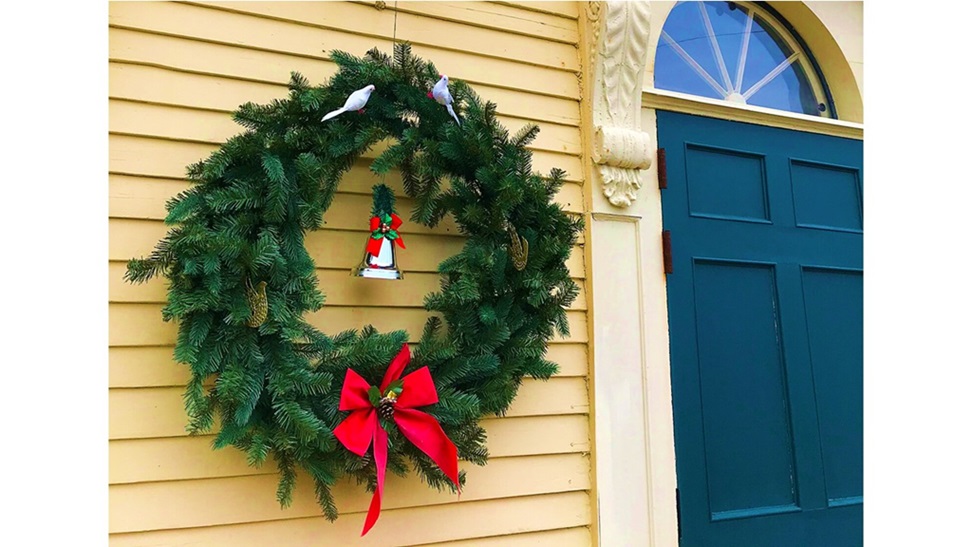.
The Wreath
Circle of green—
What does it mean?
Never ending,
Ever bending.
It’s hope that’s vernal
And faith that’s welling
For God in-dwelling
And life eternal.
.
Pruning Trees
Now that all the fruit has dropped
__And all the leaves have fallen,
It’s time to get those branches lopped
__‘fore winter comes a-callin’.
Time was when you had nothing but,
__And all your shoots grew wild,
But now it’s time to make the cut,
__And back, and back, be dialed.
To simplify, to simplify,
__As Thoreau once said;
Get rid of “stuff”, plus say goodbye
__To junk inside your head!
.
.
Cheryl Corey is a poet who lives in Connecticut. “Three Sisters,” her trio of poems about the sisters of Fate which were first published by the Society of Classical Poets, are featured in “Gods and Monsters,” an anthology of mythological poems (MacMillan Children’s Books, 2023).
















Great stuff Cheryl – very readable and clever. Of course, I don’t know how much would be left if I could really get rid of all the junk inside my head! Thanks for sharing these delightful morsels with us.
The junk inside my head is the hardest to get rid of.
Cheryl, as always, your poems are beautifully rhymed, witty, and have a great message. I especially enjoyed the rhyming of “vernal” and “eternal.” Getting rid of the junk in the head as one prunes the trees late in the year is wonderfully and creatively thought out.
Thank you, Roy. I had, at one point in the past, consulted a Bible dictionary regarding the symbolism of the wreath. Perhaps others with more knowledge can elaborate.
The Greek word for wreath is “stephanos,” and in the ancient world this term was used to refer to a garland of victory (usually of laurel or ivy or myrtle) awarded to someone who has achieved some kind of triumph. In Christian writing it often refers to the symbolic spiritual victory of a martyr who has died for the faith. The person is said to have received “the crown of martyrdom.” The name of the first recorded martyr, Saint Stephen, is very likely connected with this idea.
I would have loved to have taken one of your classes. Any of them!
I’d love to have you in one!
Isn’t the wreath just a variation of ouroboros?
No, I don’t think so. The ouroboros (a snake eating itself) is a magical symbol, usually connected with alchemy though sometimes also with the idea of eternity or endless cycles of death and rebirth. The Western wreath is closely connected with victory, achievement, and triumph. It can also symbolize unity, as in the German idea of the “Bund” (closely related to our words “bind” and “bound”), where many different things or persons are “bound up together” in a wreath-like union.
Bob, per Wikipedia, in 1839 Lutheran priest Johann Hinrich Wichern used a wreath made from a cartwheel to educate children about the meaning and purpose of Christmas, as well as to help them count its approach, thus giving rise to the modern version of the Advent wreath.
OK Cheryl and Joseph, apparently I stand corrected, but I still think that both ouroboros and wreaths are rooted in the same ancient concept of the cycle of life. That is what the closed circle is about, eh?
I love the phrase ‘back, and back, be dialed’ (very Shakespearean), with the image of telling a fruit tree (or perhaps, metaphorically, a person) what’s what, and then taking the analogy further to advising us to remove the ‘junk’ from our heads.
Thanks for the reads, Cheryl.
Cheryl, you could have written several pages about the rich symbolism of a wreath, but in pruning your poem down to 25 words, you’ve created a definitive description of its essence. Memorable, too!
As I read the second poem, pruning seems the right thing to do at the end of the fruit-bearing year–to ensure a healthy tree come spring. But the season also calls for ingathering and preserving, leaving the would-be simplified fruit grower with more “stuff” than ever. Not “junk,” perhaps, if one can make good use of it, but it does pile up.
What I had in mind with the second poem, Margaret, was how we accumulate so many material things in our life, but there comes a point when perhaps you say to yourself, what am I doing with all of this? So it becomes a matter of preserving what has the most meaning and importance for wherever we are in life, and jettisoning what no longer works. On a personal level, that’s what I’m trying to do right now. As always, thank you for the read and input.
Both of these are excellent. I never once thought about where wreaths came from or what they symbolized. I am however in the midst of a de-cluttering process (moving houses). We’re simplifying getting rid of a lot of physical junk. I haven’t yet had the courage to touch the mental junk but I know there is plenty of that that needs to be addressed as well.